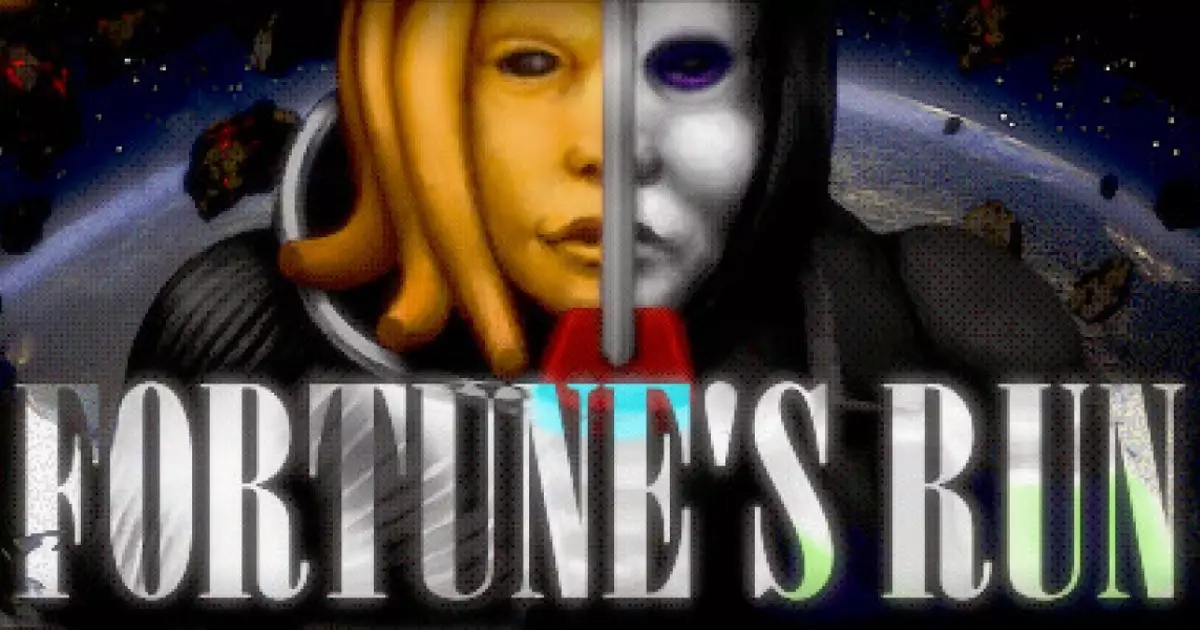In an unexpected turn of events, the indie game “Fortune’s Run,” an immersive sim-shooter that garnered a dedicated following, faces an abrupt halt in its development. The lead developer, known under the pseudonym Dizzie, announced via a post on Steam that due to a three-year prison sentence stemming from a “violent crime,” the project will go on indefinite hiatus. This surprising disclosure leaves the gaming community in a state of shock, questioning the future of a game they have invested their time and hope in—the product of years of labor and passion from a once-promising developer duo.
The news of Dizzie’s impending incarceration opens the door to discussions surrounding the complexities of a developer’s personal life impacting their professional endeavors. As indicated in Dizzie’s lengthy post, this saga is not new; it is tied to a case that has occupied five years of their life, punctuated by a chaotic blend of legal struggles and aspirations in the gaming industry. “It’s a long story,” Dizzie confides, highlighting how a troubled past has followed them into the realm of game development. Throughout this period, it appears the personal and professional lines have blurred, leading to unfortunate consequences for both the developer and the game’s future.
On one level, Dizzie’s acknowledgment of a violent past might evoke empathy. Many can relate to the idea that individuals can undergo significant transformations in life, leaving previous behaviors behind. However, it also raises critical discussions about accountability and the consequences of one’s actions—issues that resonate beyond the gaming industry and into society at large. The legal system and its repercussions are part of Dizzie’s narrative, indicating that creative pursuits can become intertwined with unresolved personal traumas.
Compounding the situation, Arachne, the second half of Team Fortune, departed from the development team following health-related difficulties, which adds another layer of complexity to this narrative. After recovering from a mishandled surgical procedure, her exit leaves Dizzie navigating the final stages of game development alone. In a world where collaborative efforts are fundamental to creative success, this separation could spell disaster for any project’s future.
Dizzie emphasizes that Arachne’s departure is unrelated to their legal troubles, insisting that her exit was not a product of the stress stemming from their personal circumstances. Nevertheless, transitioning from a two-person development team to solo efforts demonstrates the fragile nature of indie game creation, where even rumblings of personal turmoil can stifle collaborative creativity and progress.
The Community Response
As awareness about the game’s hiatus spreads, the response from the gaming community has been a mixed bag of disappointment and understanding. While embracing a sense of loyalty towards the creators and their previously shared narrative, contributions to the game’s funding and fanfare complicate matters. Players are left grappling with the loss of potential new content and the narrative drive they had anticipated from “Fortune’s Run.”
Despite the gravity of the situation, there’s an undertone of hope present in Dizzie’s post. Their commitment to the craft is palpable when they announce that existing sales of the game are strong enough to sustain them during imprisonment, bringing a glimmer of optimism that development could resume post-incarceration. This prospect vibrantly illustrates a resilience characteristic of many creatives, where passion often endures beyond temporary setbacks.
What emerges from this tangled web of personal struggles, loss, and perseverance is a powerful narrative surrounding indie game development. It serves as a reminder that the individuals behind the creations are just as essential as the games themselves. As Dizzie notes their passion for game-making, the indomitable spirit of creativity shines through even in the darkest of circumstances.
While “Fortune’s Run” may enter a dormancy marked by uncertainty, the future for Dizzie post-sentence holds promise. With unfinished prototypes and an unwavering dedication to their craft, potential awaits on the other side of this legal battle. Should Dizzie succeed in overcoming these adversities, the gaming community might find themselves welcoming back a developer with renewed vision and vigor, ready to breathe life into “Fortune’s Run” once again. The journey thus far may be riddled with challenges, but the story continues to unfold, echoing the complexities of life, artistry, and redemption in the vibrant world of indie gaming.

